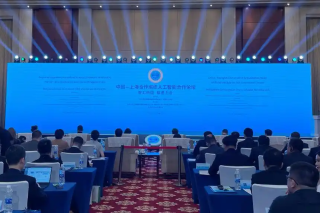Chinese athletes with disabilities share dreams and glory in sports
Over the past eight days, many Chinese athletes with disabilities have gathered in north China's Tianjin municipality to take part in the grandest sports gala in the country: the 10th National Games for Persons with Disabilities.
"Sports that have helped me rebuild confidence," said three-time Paralympics gold medalist Yang Bozun, a blind swimmer who won the first gold of the National Games.
Apart from excelling in competition, Yang also leads a full life. He can communicate with international journalists in fluent English, and has also formed a music band with his son and daughter.
Shang Ting, 22, a college student from southwest China's Sichuan Province, was buried in ruins for over 100 hours after the devastating 8.0-magnitude earthquake that hit the region in 2008, losing her legs, left eye and the index finger of her left hand.
But none of this has impeded her from pursuing her dreams as the youngest amateur member of the Sichuan women's wheelchair basketball team.
"This team sport has made me stronger than before," Shang said. "I once thought that doing sports would be a dream too far, but wheelchair basketball let me realize that disabilities have nothing to do with someone's ability to enjoy playing in a basketball game."
Yu Genzhu, 61, was diagnosed with poliomyelitis in his childhood. A former member of the Tianjin sitting volleyball team, he came back again for this event after being off the court for 12 years.
"I know that my physical strength and skills cannot match that of the younger players, and I feel my arms aching after days of training. However, the moment I am on the court, I will try my best to show my fighting spirit and mental strength," Yu said.
Yu added that China has provided the disabled with significant support in a wide range of areas including sports.
In 1983, Tianjin held an unprecedented sports event for the disabled in China, inviting 200 athletes from 13 provinces, municipalities and autonomous regions. This laid the foundation for the organization of a comprehensive national sporting event for the disabled.
The following year, China's first National Games for Persons with Disabilities opened, which later became a sports gala for the disabled held every four years. In the same year, a Chinese delegation participated in the Paralympic Games held in New York for the first time.
Ping Yali won the first gold medal for China in the long jump. She is a 58-year-old retired athlete now, and recalls her experiences there.
"It was very hard at the time, since we did not have special wheelchairs for sporting use and had to be lent some from a bicycle manufacturing factory," Ping said.
As time passed by, China's sports industry, training conditions and infrastructure construction for the disabled have vastly improved.
Majed Rashed, president of the Asian Paralympic Committee (APC), said China's barrier-free environment has improved a lot for disabled people, especially those in wheelchairs.
"I can get on public transportation easily, and there is room for a wheelchair in my hotel. It is easy for me to go to the toilet now, there is no risk and no danger," he said.
The Chinese government issued an action plan covering 2019-2030 in July to implement the country's Healthy China initiative and promote people's health.
According to the plan, by 2030, about 90 percent of the school sports venues will be open to the public, and per capita sporting space will reach 2.3 square meters.
Zhang Haidi, chairman of China Disabled Person's Federation, said sports for the disabled is an important aspect of overall national health.
"It helps create good conditions for persons with disabilities to get out of the house and integrate into society, and more importantly, to enhance their sense of happiness," Zhang explained.

Copyright ©
Tianjin Municipal Government. All rights reserved. Presented by China Daily.
京ICP备13028878号-35



